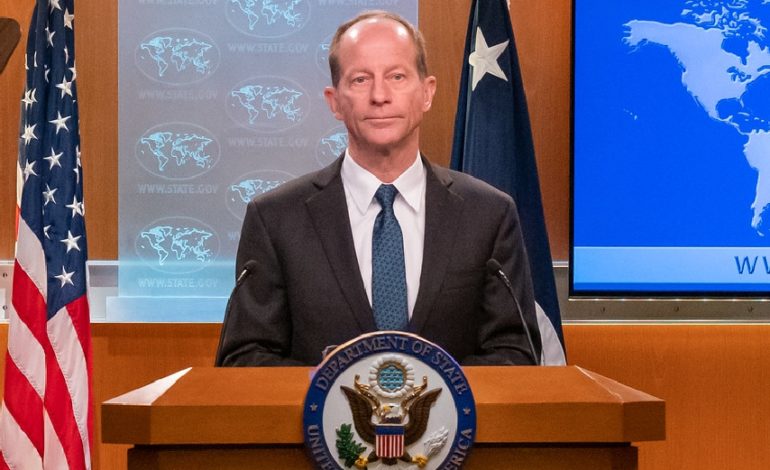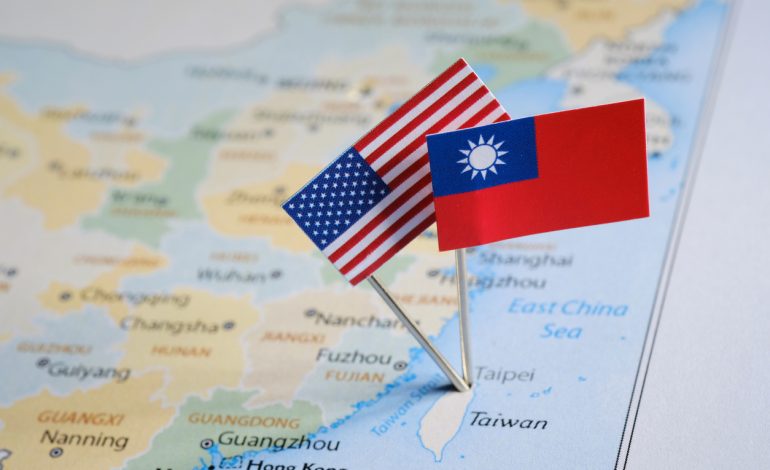
The United States, Taiwan, and the World: Partners for Peace and Prosperity
DAVID R. STILWELL, ASSISTANT SECRETARY
BUREAU OF EAST ASIAN AND PACIFIC AFFAIRS
THE HERITAGE FOUNDATION (VIRTUAL)
AUGUST 31, 2020
Thank you for the wonderful introduction. I would like to thank the Heritage Foundation for the invitation to speak with you today.
I am very pleased to have the opportunity to talk about Taiwan, one of America’s most reliable partners in the Indo-Pacific, and indeed the world.
It says a lot about Taiwan that, in the pre-COVID era, millions of tourists from mainland China would visit the sites during the day and huddle around the TV in their hotel rooms at night. Why would they do so? To witness the spectacle of free ethnic Chinese people speaking their minds openly and fearlessly, engaging in robust debate and enjoying their democratic freedoms, including the right to criticize their elected leaders.
For such mainland visitors, a visit to Taiwan was a reminder that no one person, no one party, can monopolize the minds and thoughts of all ethnic Chinese people. Indeed, it served as the most compelling tourist attraction of all: a vision of a democratic Chinese society and polity that is prosperous, harmonious, free, and highly respected by people all around the world.
If you visit the National Palace Museum, you can see treasures that escaped the Communist Red Guards and the horrific destruction of the Cultural Revolution. In Taiwan you can see a Chinese society that flourishes free of the toxic brew of Marxism-Leninism and Mao Zedong Thought that battered the mainland.
Taiwan is a highly advanced $600 billion economy with 23 million free people. It is a vision of how much the Chinese people can achieve.
Until recently, Hong Kong provided a similar vision.
Because of this, and more than ever, Taiwan is important to America, and important to the world. It is a good friend to nations that seek help, whether in dealing with Ebola, or COVID, or the other problems faced by our world.
It is for these reasons that we Americans focus so much on Taiwan, and why we admire its leaders and its people and its institutions and its symbolism in world affairs.
It is why large bipartisan majorities of our elected representatives signal consistent support for Taiwan, and for its people, and for the values that it represents.
Recent Developments in U.S.-Taiwan Ties
There’s a lot going on in the U.S.-Taiwan relationship these days.
To refresh, the Taiwan Relations Act directs that the United States will continue engagement with Taiwan to maintain stability in the Western Pacific and support commercial, cultural and other relations between the people of the United States and Taiwan.
As I am sure everyone knows, Health and Human Services Secretary Alex Azar traveled to Taiwan earlier this month. He met with President Tsai Ing-wen and other senior members of her team to promote stronger health and economic ties, especially in light of the devastation of the coronavirus pandemic.
Secretary Azar’s trip was a continuation of our longstanding support for Taiwan. For years we regularly sent Cabinet officials to demonstrate our principled and sustained support.
Last week, American Institute in Taiwan Director Brent Christensen joined Taiwan’s foreign minister, Joseph Wu, to issue a Joint Declaration on 5G Security, expanding cooperation on data protection, freedom, and human rights.
In May, Secretary Pompeo and Commerce Secretary Wilbur Ross welcomed the announcement from TSMC, Taiwan’s world-leading semiconductor company, declaring its intent to invest $12 billion in Arizona to manufacture the world’s most advanced semiconductor chips for use in 5G and other applications right here in the United States.
To build on this great momentum, I am glad to share today that the U.S. and Taiwan are establishing a new bilateral economic dialogue. These talks will explore the full spectrum of our economic relationship – semiconductors, healthcare, energy, and beyond – with technology at the core.


